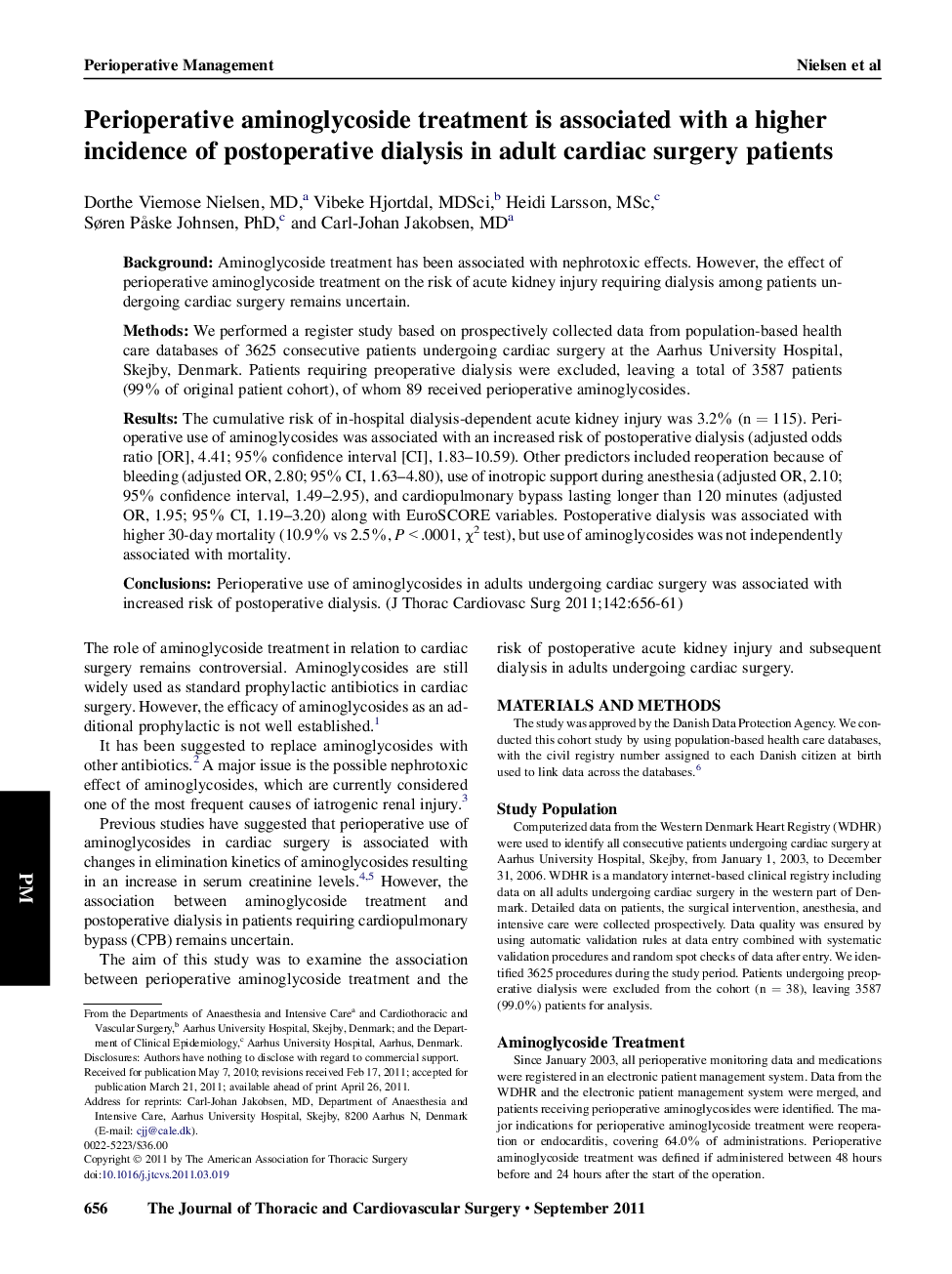| Article ID | Journal | Published Year | Pages | File Type |
|---|---|---|---|---|
| 2982241 | The Journal of Thoracic and Cardiovascular Surgery | 2011 | 6 Pages |
BackgroundAminoglycoside treatment has been associated with nephrotoxic effects. However, the effect of perioperative aminoglycoside treatment on the risk of acute kidney injury requiring dialysis among patients undergoing cardiac surgery remains uncertain.MethodsWe performed a register study based on prospectively collected data from population-based health care databases of 3625 consecutive patients undergoing cardiac surgery at the Aarhus University Hospital, Skejby, Denmark. Patients requiring preoperative dialysis were excluded, leaving a total of 3587 patients (99% of original patient cohort), of whom 89 received perioperative aminoglycosides.ResultsThe cumulative risk of in-hospital dialysis-dependent acute kidney injury was 3.2% (n = 115). Perioperative use of aminoglycosides was associated with an increased risk of postoperative dialysis (adjusted odds ratio [OR], 4.41; 95% confidence interval [CI], 1.83–10.59). Other predictors included reoperation because of bleeding (adjusted OR, 2.80; 95% CI, 1.63–4.80), use of inotropic support during anesthesia (adjusted OR, 2.10; 95% confidence interval, 1.49–2.95), and cardiopulmonary bypass lasting longer than 120 minutes (adjusted OR, 1.95; 95% CI, 1.19–3.20) along with EuroSCORE variables. Postoperative dialysis was associated with higher 30-day mortality (10.9% vs 2.5%, P < .0001, χ2 test), but use of aminoglycosides was not independently associated with mortality.ConclusionsPerioperative use of aminoglycosides in adults undergoing cardiac surgery was associated with increased risk of postoperative dialysis.
